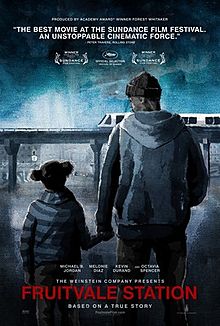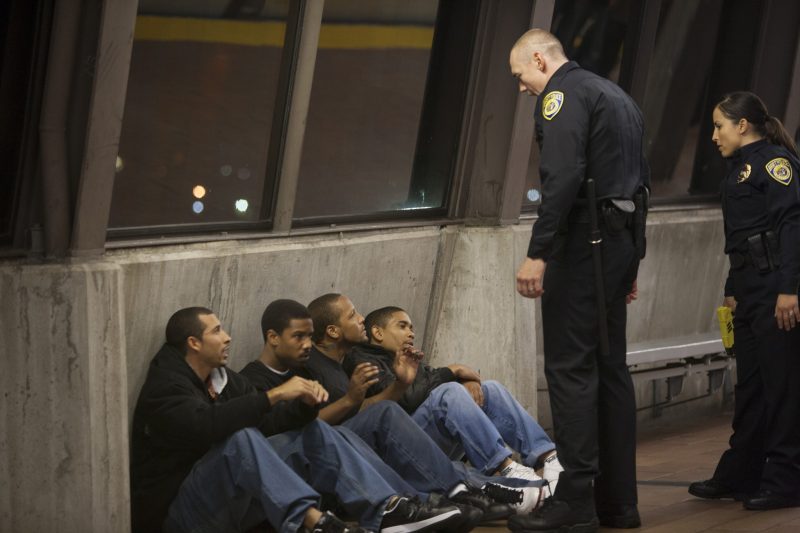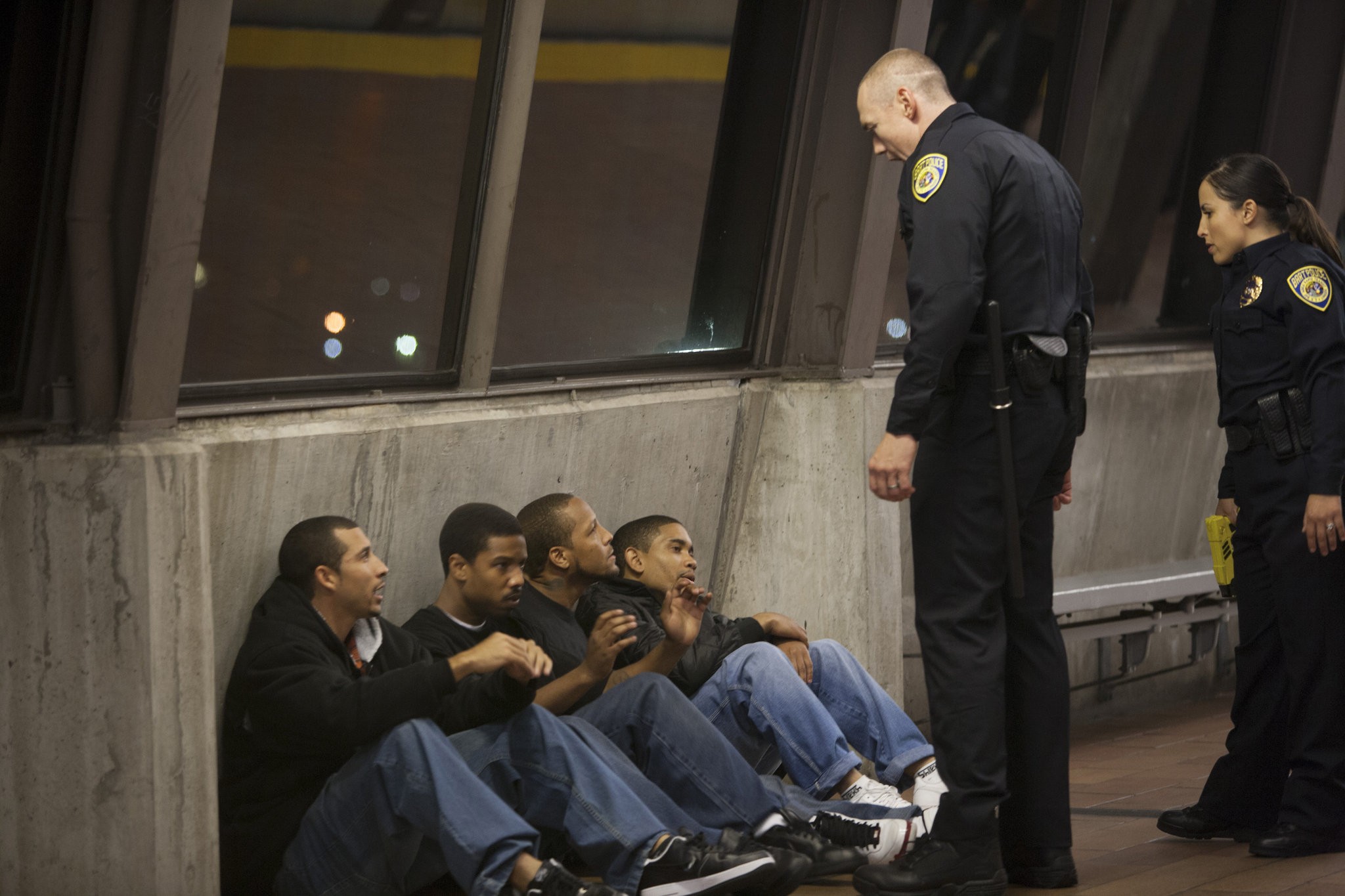
A young, troubled father, struggling to finally put his life back together, is tragically killed by transit police in the true story of Fruitvale Station.
Oscar Grant (Michael B. Jordan) was returning from a night out with friends, enjoying San Francisco’s New Year’s Eve festivities for 2009. A fight broke out on the train that he and his friends were on, which resulted in the arrival of several transit police who promptly rounded up Oscar and a few of his friends. What transpired next was witnessed and filmed by several other passengers. The police began to lose control of both the situation and their nerve. After a few chaotic minutes, Oscar was pinned face down and shot in the back by one of the officers. That wound would cost him his life a few hours later. This is the first scene of the film.
With the end now graphically delivered, we’re taken back to the previous morning when Oscar is waking up to face his last day on Earth. We find that he’s anything but perfect. He’s got a problematic relationship with his girlfriend, who is also the mother of their young daughter. He’s also an ex-con who spent hard time in prison for selling drugs although that’s not entirely clear from the plot. He has also just lost his job and isn’t sure how to tell the people he loves.
That’s the foundation for how the first hour of this 90-minute film progresses. We get a detailed slice-of-life perspective of Oscar’s actions for that critical day. When the fateful altercation takes place in the final act, it’s both highly disturbing and emotionally gripping.
Much of the power of the film comes from the incredible acting throughout. Jordan is very good as Oscar but Octavia Spencer as his mother Wanda is the biggest standout. We can feel every ounce of her concern for her son. The rest of the cast is also wonderful.
One reality that cannot be overlooked is the timing of the film. It couldn’t possibly be more apt given the recent national discussion involving the Trayvon Martin affair. The big question is if the film is helped or hindered by that timing.
For me, I suspect it’s mainly benefiting from that proximity as there are a number of elements that many seem to gloss over or simply ignore. For one thing, the plot summary suggests that Oscar is almost psychic by sensing that something’s very wrong on the fateful morning. No such angle is portrayed in the film. Oscar goes about his day like any other. That this is his mother’s birthday probably has more to do with his generally good nature than any other factor.

The main disconnect is that Oscar’s story is, in the final analysis, only interesting because of its final outcome. Many of us have kids. All of us have problems. Watching long scenes of Oscar shopping and hanging out around town isn’t very interesting. Worse than that, it’s slow and, frankly, not very helpful. It works against the power of the final act. What transpired was a tragedy of the highest order, but we’d feel sympathy for anyone who experienced it. If anything, seeing Oscar with all the skeletons results in a lack of surprise when the police single out him and his friends. He seems incapable of considering his daughter until it’s too late.
The better story would have been to start — as the film does — with the killing and then delve into the aftermath involving its impact — to the family, the officers, the community and its legacy. Instead, we get a an awkwardly slow retelling of a vanilla story with a riveting, emotional final act and then a few screens of text to tie up the most interesting elements.
Another major concern for me is that a huge plot point was altered to create even more disgust for the police. It’s entirely unnecessary and does a disservice to Oscar’s memory.
The bottom line is that this is a wonderfully acted portrayal of events that demands our attention and understanding. I just believe the producers, in trying to memorialize Oscar, missed the bigger, much more compelling opportunity.


